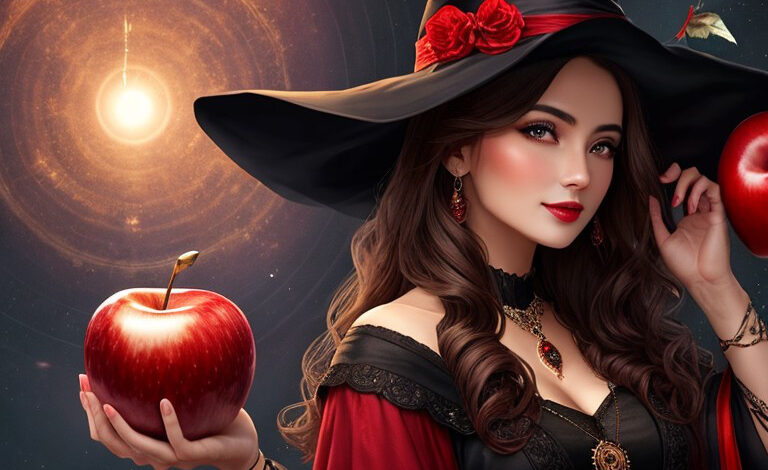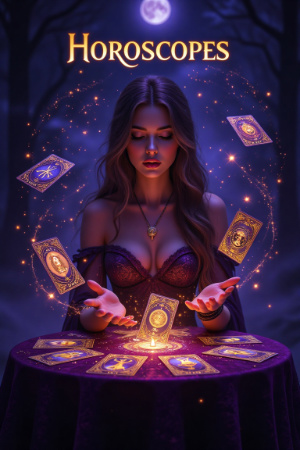
Incense smoke has swirled through cultures and traditions for millennia. From the cleansing rituals of ancient Egypt to the meditative practices of Buddhism, these fragrant plumes have held a powerful place in human history. But incense is more than just a pleasant aroma. Each variety boasts unique properties, believed to influence our moods, energies, and even the spiritual realm.
Understanding these properties and their correspondences unlocks a deeper level of interaction with incense. It allows you to choose the right incense for your intention, whether it’s seeking peace and relaxation, igniting creativity, or purifying your space. This guide will delve into the fascinating world of incense, exploring the properties of various types and their associated elements, emotions, and goals. By learning this language of scent, you can transform your incense-burning experience from simply enjoying a pleasant aroma to harnessing the power of fragrance to enhance your well-being and create a more intentional atmosphere.
Exploring Incense Properties and Correspondences

1. Frankincense and Myrrh: Ancient Wisdom and Spiritual Elevation
Properties: Frankincense and myrrh, two of the most renowned incense resins, have been treasured for their profound spiritual and medicinal qualities. Frankincense is known for its purifying and protective properties, making it a staple in cleansing rituals and spaces. Myrrh, on the other hand, is associated with healing, transformation, and the connection to divine wisdom.
Correspondences: These resins are often linked to celestial forces and deities in various cultures. In Christianity, they were among the gifts brought by the three Magi to the infant Jesus, symbolizing his divinity. In ancient Egypt, myrrh was associated with the goddess Isis and used in funerary rituals to guide the soul to the afterlife.
2. Sandalwood: The Sacred Scent of Devotion
Properties: Sandalwood, with its rich and warm aroma, is revered for its ability to induce a state of deep relaxation and meditation. Its calming properties make it a sought-after choice for enhancing spiritual practices and fostering a sense of inner peace.
Correspondences: Sandalwood is often linked to deities that embody love, compassion, and devotion. In Hindu traditions, it is associated with deities such as Shiva and Lakshmi. The scent of sandalwood is believed to attract benevolent spirits and facilitate communication with the divine.
3. Patchouli: Earthy Grounding and Abundance
Properties: Patchouli is renowned for its earthy and grounding scent. It is often used to anchor energy, promote emotional balance, and attract abundance. Its connection to the root chakra makes it a powerful tool for grounding and stability.
Correspondences: Patchouli’s correspondence with the element of Earth aligns it with deities and spirits associated with nature and fertility. Its use can evoke the energies of earth-centered goddesses and gods, fostering a deeper connection to the natural world.
4. Lavender: Purification and Serenity
Properties: Lavender is celebrated for its soothing and purifying properties. Its gentle floral aroma is believed to cleanse spaces of negative energy and promote emotional healing and relaxation.
Correspondences: Lavender is often associated with deities linked to healing and tranquility, such as the Roman goddess Venus or the Greek goddess Aphrodite. Its delicate scent is used to invoke feelings of serenity and to create an atmosphere conducive to inner reflection.
5. Dragon’s Blood: Empowerment and Protection
Properties: Dragon’s Blood resin is renowned for its potent protective qualities. It is used to banish negativity, enhance magical workings, and amplify personal power.
Correspondences: In magical and spiritual practices, Dragon’s Blood is often associated with deities or beings of strength and empowerment. It is believed to draw the energy of dragons or other powerful creatures, infusing the user with their attributes.
6. Cedarwood: Ancestral Wisdom and Protection
Properties: Cedarwood incense carries the earthy and woody scent of ancient trees. It is renowned for its purifying and protective properties, making it a powerful tool for cleansing spaces and dispelling negative energies. Cedarwood is also associated with grounding and stability.
Correspondences: Cedarwood’s connection to ancient trees and forests aligns it with spirits of nature and ancestral energies. It is often used to honor and connect with ancestors, inviting their guidance and wisdom into our lives. In Native American and Indigenous traditions, cedar is regarded as a sacred plant with strong protective and healing qualities.
7. Jasmine: Sensuality and Spiritual Illumination
Properties: The intoxicating aroma of jasmine incense is often associated with sensuality, love, and emotional balance. It is believed to open the heart chakra, enhancing feelings of passion and romance. Jasmine also holds properties that encourage spiritual insight and illumination.
Correspondences: Jasmine is often linked to goddesses and deities of love and sensuality, such as the Roman goddess Venus or the Egyptian goddess Hathor. Its sweet and enchanting fragrance is used to invoke feelings of beauty, grace, and heightened spiritual awareness.
8. Palo Santo: Sacred Cleansing and Blessing
Properties: Palo Santo, a fragrant wood known as “holy wood,” is celebrated for its potent cleansing and purifying abilities. When burned as incense, its rich and grounding aroma can clear stagnant energy, create a sacred space, and invite blessings into one’s life.
Correspondences: Palo Santo is deeply rooted in indigenous South American traditions, where it is believed to hold the spirit of the sacred tree. It is used to connect with spirits, ancestors, and the divine, making it a valuable tool for rituals and ceremonies that seek protection, healing, and guidance.
9. Cinnamon: Passion and Success
Properties: The warm and spicy scent of cinnamon incense is associated with passion, creativity, and success. It is believed to ignite the fire within, stimulating motivation and determination. Cinnamon is also considered a powerful agent for attracting prosperity and abundance.
Correspondences: Cinnamon’s fiery energy aligns it with deities of passion, vitality, and achievement. In various cultures, it is offered to gods and goddesses associated with success and wealth. Its vibrant aroma is used to infuse spaces with ambition, courage, and the drive to pursue one’s goals.
10. Mugwort: Divination and Dreamwork
Properties: Mugwort incense is revered for its ability to enhance psychic abilities, intuition, and dream experiences. Its ethereal scent is believed to open doors to the spirit world, making it a valuable tool for divination, meditation, and astral travel.
Correspondences: Mugwort’s association with the realm of dreams and the unseen aligns it with deities and spirits that govern divination and magic. In folklore and witchcraft, mugwort is regarded as a powerful herb for connecting with the subconscious mind, seeking guidance from higher realms, and exploring the mysteries of the universe.
11. Rose: Love and Compassion
Properties: The delicate and captivating aroma of rose incense is associated with love, compassion, and emotional healing. It is believed to open the heart chakra, fostering self-love, romantic connections, and harmonious relationships. Rose incense is also known for its ability to soothe emotional wounds and invite feelings of tenderness.
Correspondences: Rose is often linked to deities and spirits that embody love and beauty, such as the goddess Aphrodite in Greek mythology. Its sweet and enchanting scent is used in rituals and spells to attract love, enhance emotional well-being, and honor the divine feminine.
12. Amber: Protection and Manifestation
Properties: Amber incense exudes a warm and resinous scent that is associated with protection, purification, and manifestation. It is believed to create a shield against negative energies and facilitate the manifestation of desires and intentions. Amber’s energy is grounding yet uplifting, making it a valuable tool for both spiritual and practical endeavors.
Correspondences: Amber’s connection to protection and manifestation aligns it with deities and spirits that govern abundance, growth, and safety. In various cultures, amber is considered a sacred substance with powerful metaphysical properties. Its use in incense rituals can invoke the energies of ancient gods and goddesses associated with prosperity and divine guidance.
13. Eucalyptus: Healing and Clarity
Properties: Eucalyptus incense carries the invigorating and cleansing scent of fresh leaves. It is renowned for its healing properties, particularly in respiratory and mental well-being. The aroma of eucalyptus is believed to clear the mind, enhance focus, and promote clarity of thought.
Correspondences: Eucalyptus is often associated with deities and spirits that govern health, healing, and transformation. In Aboriginal Australian traditions, eucalyptus is considered a powerful plant with strong medicinal and spiritual significance. Burning eucalyptus incense can create an atmosphere conducive to physical and mental healing, as well as spiritual growth.
14. Benzoin: Prosperity and Blessings
Properties: Benzoin incense exudes a rich and sweet aroma, often used for its magical properties of attracting prosperity, success, and blessings. It is believed to create a harmonious and joyful environment, making it an excellent choice for rituals that aim to enhance abundance and positivity.
Correspondences: Benzoin’s association with prosperity aligns it with deities and spirits that oversee wealth and good fortune. Its use in incense rituals can invite the energies of benevolent beings and cosmic forces that support the manifestation of one’s goals and aspirations.
15. Sage: Wisdom and Purification
Properties: Sage incense is renowned for its powerful purifying and cleansing qualities. Its earthy and aromatic scent is used to clear negative energy, dispel spiritual stagnation, and create a sacred space for rituals and meditation. Sage is also associated with wisdom and protection.
Correspondences: Sage has a strong connection to indigenous traditions, where it is used for its healing and spiritual properties. The burning of sage is a common practice in smudging rituals, which seek to purify individuals, objects, or spaces. Sage incense can evoke the energies of wise ancestors, spirit guides, and guardian spirits that offer guidance and protection.
16. Lemon Balm: Joy and Upliftment
Properties: Lemon balm incense carries a bright and citrusy aroma that is known for its uplifting and mood-enhancing qualities. It is believed to alleviate stress, anxiety, and depression, promoting feelings of joy, positivity, and emotional well-being.
Correspondences: Lemon balm is often associated with deities or spirits that govern happiness, laughter, and light-heartedness. Its use in incense rituals can invite the energies of playful and benevolent beings, creating an atmosphere of joy and delight.
17. Juniper: Protection and Banishing
Properties: Juniper incense exudes a fresh and invigorating scent that is used for its protective and purifying properties. It is believed to ward off negative energies, remove obstacles, and facilitate the banishment of unwanted influences.
Correspondences: Juniper’s connection to protection aligns it with deities and spirits that guard against harm and malevolent forces. In various cultures, juniper is regarded as a sacred plant with the ability to cleanse and shield. Burning juniper incense can invoke the presence of powerful protectors and create a safe and fortified space.
18. Vanilla: Sensuality and Comfort
Properties: Vanilla incense carries a warm and comforting aroma that is often associated with sensuality, love, and emotional comfort. It is believed to ignite passion, enhance romantic connections, and promote feelings of intimacy.
Correspondences: Vanilla’s sweet and enticing scent aligns it with deities and spirits that govern love, pleasure, and desire. In magical practices, vanilla is often used to infuse rituals with an air of sensuality and to create an atmosphere of relaxation and emotional well-being.
19. Copal: Spiritual Connection and Offering
Properties: Copal incense, derived from tree resins, exudes a resinous and earthy scent that is revered for its ability to enhance spiritual connection and communication with higher realms. It is often used as an offering to deities, spirits, and ancestors.
Correspondences: Copal’s connection to spiritual realms aligns it with deities and beings that facilitate divine communication and guidance. It is a common incense in Mesoamerican and indigenous traditions, where it is used to honor the divine and bridge the gap between the physical and spiritual worlds.
20. Heliotrope: Divination and Intuition
Properties: Heliotrope incense carries a mysterious and intriguing scent that is associated with divination, psychic abilities, and intuition. It is believed to enhance spiritual insights, dreams, and the exploration of the unknown.
Correspondences: Heliotrope’s connection to divination aligns it with deities and spirits that govern prophecy, wisdom, and hidden knowledge. Burning heliotrope incense can create an atmosphere conducive to meditation, psychic exploration, and the awakening of inner wisdom.
Final Musings
As we journey deeper into the world of incense, we uncover a rich tapestry of scents, properties, and correspondences that hold the keys to unlocking spiritual experiences and transforming our connection with the universe. Each type of incense becomes a portal to different intentions, a bridge to specific deities, and a conduit to magical realms. The power of incense lies not only in the fragrant smoke that envelops us but in the profound impact it has on our hearts, minds, and spirits. In the following sections, we will continue our exploration, unraveling the threads that connect us to the mystical world through the alluring medium of incense.




